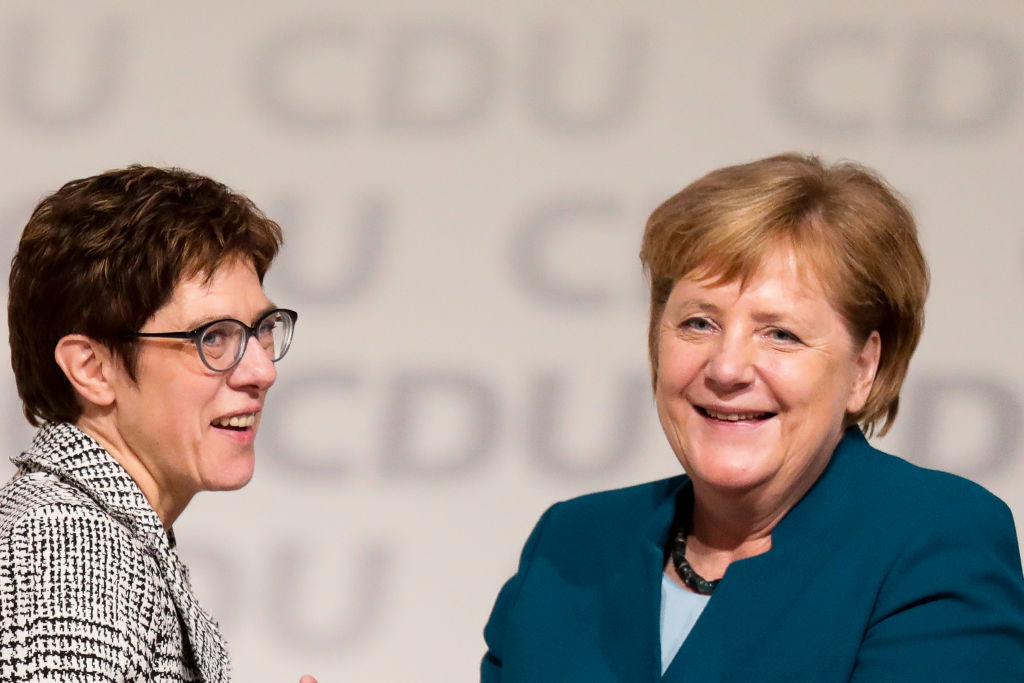by Soeren Kern • December 14, 2018 at 5:00 am
Annegret Kramp-Karrenbauer promised to hold a "workshop discussion" (Werkstattgespräch) on immigration and security. On all major policy issues, however, Kramp-Karrenbauer's positions are virtually identical to those of Merkel.
"Ms. Kramp-Karrenbauer is the continuation of Merkel by other means. She has supported the refugee policy and will not correct it." — Alexander Gauland, Co-Chair, AfD party.
"The CDU has not given convincing answers to the consequences of globalization and digitization.... The CDU lacks a clear vision of how prosperity and jobs are not only secured but expanded..." — The business newspaper Handelsblatt, in a commentary entitled, "CDU: The Divided People's Party."

Annegret Kramp-Karrenbauer (left) and German Chancellor Angela Merkel react after Kramp-Karrenbauer was chosen to succeed Merkel as the next leader of the Christian Democratic Union party (CDU) on December 7, 2018 in Hamburg. (Photo by Carsten Koall/Getty Images)
Annegret Kramp-Karrenbauer, a 56-year-old career politician committed to the status quo, has been chosen to succeed Chancellor Angela Merkel as leader of Germany's Christian Democratic Union (CDU).
Kramp-Karrenbauer — often referred to as "Mini-Merkel" or "Merkel 2.0" because many view her as Merkel's clone — won by just 35 votes (517 to 482) in a second-round run-off against her main opponent, a conservative named Friedrich Merz, at a CDU conference in Hamburg on December 7. Kramp-Karrenbauer's extremely narrow victory (51.7% to 48.2%) revealed a party split down the middle.
Merz had pledged to pull the CDU back to its conservative roots, after two decades of leftward drift under Merkel's leadership resulted in a mass defection of angry CDU voters to the anti-mass migration party, Alternative for Germany (AfD), now the third-largest in the German parliament.
|
|


No comments:
Post a Comment